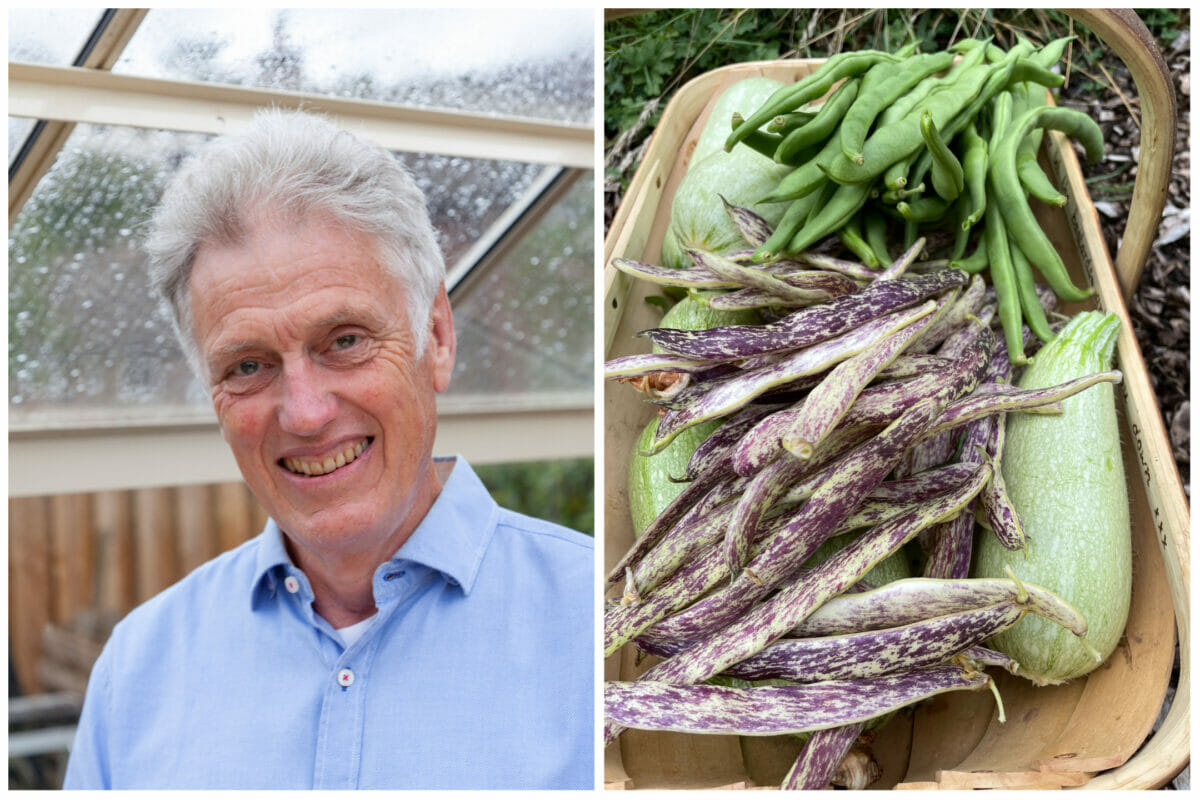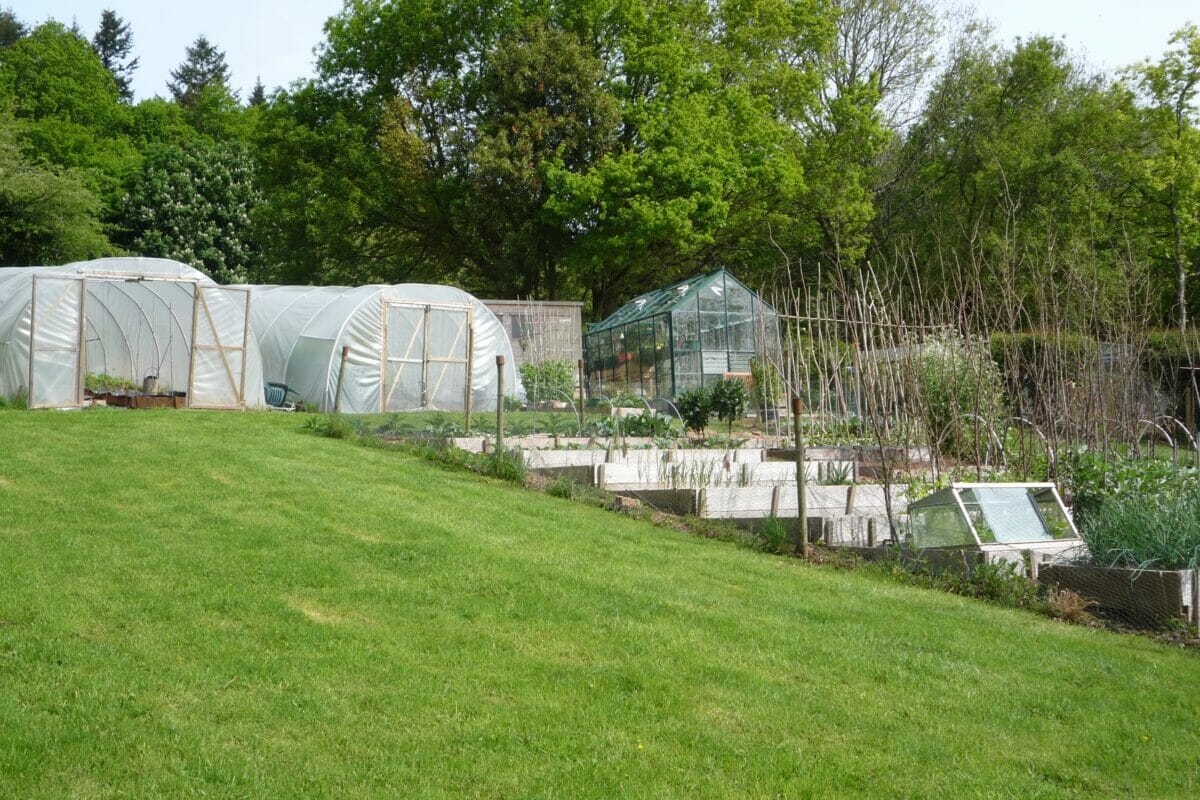This Seed Detective Travels the World Tracking Down Lost Crops
Adam Alexander travels the world looking for new seeds to add to his collection, an act he believes ties us to our ancestors.
This Seed Detective Travels the World Tracking Down Lost Crops
Adam Alexander travels the world looking for new seeds to add to his collection, an act he believes ties us to our ancestors.

Meet the seed detective.courtesy of Jesse Alexander and Adam Alexander.
You’d expect someone once nicknamed the “Indiana Jones of seeds” to be a bit fanatical and dedicated to the job. But for Adam Alexander, author and horticulturist, seeds are more than just a job, hobby or passion. They’re a lifeline.
Seeds “are a visceral connection that I have with my most distant ancestors. It takes me back way beyond civilization,” says Alexander. “When you save your own seeds…you grow them for yourself and also share them; you are observing this cycle from seed to crop to saving endlessly going round and round. And that is something that connects me directly with those neolithic farmers.”
In his new book, The Seed Detective (which shares a name with his website), Alexander dives into the history behind vegetables while traveling the world hunting for their seeds. Over the years, he amassed quite a collection, now boasting seeds for more than 500 plant varieties, from which he grows 70 to 100 different crops each year in his home garden in eastern Wales.
The seed detective has collected seeds from around the world, building up a collection of little-known heritage varieties, as well as those plants on the edge of becoming lost. So far, that’s included garlic from Oman, peppers from Morocco and blue maize from a Hopi farmer in Arizona. He’s had plenty of successes germinating and rooting those seeds in the Welsh countryside—even making blue polenta out of the corn. Of course, not everything goes so smoothly. The landscape and climate of Wales is quite different from Arizona, after all.
Take the chilis he found in Singapore years ago. “I can’t get those damn things to flower,” he says. “They miss Singapore. I think I’ve got a message which is ‘Adam, that’s just one step too far.’ But I haven’t given up, I’ll put it that way.”
Alexander doesn’t give up easily. He’s continuing to try with those chili seeds, just like he experiments with all the seeds he collects. And even when the plants do successfully root, he knows they’ll not grow the same as in their native habitat. “It won’t taste quite the same, it won’t have grown in quite the same way. But what it is, for me, more than anything else, is a memory,” he says.

Many of those memories are of the places and people he’s visited while traveling to find the seeds. Often, people are happy to share their love of gardening and plants with him, eager to showcase their heirloom offerings. Other times, there’s more confusion or annoyance with his requests, like a funny exchange with an older woman selling goods at a market in Laos.
As Alexander writes, he tried to engage the woman in a conversation, asking about the bag of seeds hanging from her stall. “Are those pea seeds?” he asked through a translator. “Of course,” the woman replied. According to Alexander, she said it “in a very irritated tone as if speaking to a very small and stupid child.” He kept trying to find out more about the seeds, asking how tall they grow, how long the woman has been growing them, what part of the plant she eats. On and on he probed with basic questions, while the woman’s answers stayed as close to monosyllabic as possible. He said he could practically feel the daggers she seemed to shoot out of her eyes at him. Eventually, he was able to simply buy a bag of the seeds and take his chances with them when he got them home.
“The last thing she was expecting is some old geezer to start asking idiotic questions,” Alexander recalls. But those kinds of conversations, fumbling as they may be, can lead to great discoveries. “To me, my garden is an ark. There are things that are growing in it that are highly endangered. And if I didn’t grow them, I don’t know what would be happening to them.”
While each seed that Alexander grows might originally be suited to a different area of the world, he encourages people to try seed swapping, with friends and neighbors or as part of a larger club. He even shares seeds through his website, making his entire catalog available to peruse online. (He does ask for a donation to cover the cost of shipping.)
Not only does he believe that fresh produce is tastier, but he says the plants can become locally adapted. It’s part of what Alexander would like to see as a new green revolution, with communities prioritizing feeding themselves, putting the land and climate front and center. Rather than “paying multinationals huge amounts of money,” as Alexander says, for food and seeds, you can take steps toward moving your food systems into your own control.
By reinforcing the connection between what we grow and what we eat, we are reinforcing our values and priorities. As Alexander writes in the book: “Saving seeds from one’s own crops inspires us to think more deeply about the food choices we make.”
Follow us
This work is licensed under a Creative Commons Attribution-NoDerivatives 4.0 International License.
Want to republish a Modern Farmer story?
We are happy for Modern Farmer stories to be shared, and encourage you to republish our articles for your audience. When doing so, we ask that you follow these guidelines:
Please credit us and our writers
For the author byline, please use “Author Name, Modern Farmer.” At the top of our stories, if on the web, please include this text and link: “This story was originally published by Modern Farmer.”
Please make sure to include a link back to either our home page or the article URL.
At the bottom of the story, please include the following text:
“Modern Farmer is a nonprofit initiative dedicated to raising awareness and catalyzing action at the intersection of food, agriculture, and society. Read more at <link>Modern Farmer</link>.”
Use our widget
We’d like to be able to track our stories, so we ask that if you republish our content, you do so using our widget (located on the left hand side of the article). The HTML code has a built-in tracker that tells us the data and domain where the story was published, as well as view counts.
Check the image requirements
It’s your responsibility to confirm you're licensed to republish images in our articles. Some images, such as those from commercial providers, don't allow their images to be republished without permission or payment. Copyright terms are generally listed in the image caption and attribution. You are welcome to omit our images or substitute with your own. Charts and interactive graphics follow the same rules.
Don’t change too much. Or, ask us first.
Articles must be republished in their entirety. It’s okay to change references to time (“today” to “yesterday”) or location (“Iowa City, IA” to “here”). But please keep everything else the same.
If you feel strongly that a more material edit needs to be made, get in touch with us at [email protected]. We’re happy to discuss it with the original author, but we must have prior approval for changes before publication.
Special cases
Extracts. You may run the first few lines or paragraphs of the article and then say: “Read the full article at Modern Farmer” with a link back to the original article.
Quotes. You may quote authors provided you include a link back to the article URL.
Translations. These require writer approval. To inquire about translation of a Modern Farmer article, contact us at [email protected]
Signed consent / copyright release forms. These are not required, provided you are following these guidelines.
Print. Articles can be republished in print under these same rules, with the exception that you do not need to include the links.
Tag us
When sharing the story on social media, please tag us using the following: - Twitter (@ModFarm) - Facebook (@ModernFarmerMedia) - Instagram (@modfarm)
Use our content respectfully
Modern Farmer is a nonprofit and as such we share our content for free and in good faith in order to reach new audiences. Respectfully,
No selling ads against our stories. It’s okay to put our stories on pages with ads.
Don’t republish our material wholesale, or automatically; you need to select stories to be republished individually.
You have no rights to sell, license, syndicate, or otherwise represent yourself as the authorized owner of our material to any third parties. This means that you cannot actively publish or submit our work for syndication to third party platforms or apps like Apple News or Google News. We understand that publishers cannot fully control when certain third parties automatically summarize or crawl content from publishers’ own sites.
Keep in touch
We want to hear from you if you love Modern Farmer content, have a collaboration idea, or anything else to share. As a nonprofit outlet, we work in service of our community and are always open to comments, feedback, and ideas. Contact us at [email protected].by Emily Baron Cadloff, Modern Farmer
September 29, 2022
Modern Farmer Weekly
Solutions Hub
Innovations, ideas and inspiration. Actionable solutions for a resilient food system.
ExploreExplore other topics
Share With Us
We want to hear from Modern Farmer readers who have thoughtful commentary, actionable solutions, or helpful ideas to share.
SubmitNecessary cookies are absolutely essential for the website to function properly. This category only includes cookies that ensures basic functionalities and security features of the website. These cookies do not store any personal information.
Any cookies that may not be particularly necessary for the website to function and are used specifically to collect user personal data via analytics, ads, other embedded contents are termed as non-necessary cookies.
I think i used to subscribe to your hardcopy! ?
How can you consider seeds that have been handed down through the generations of indigenous peoples “lost”. Lost to whom? Lost by whom?